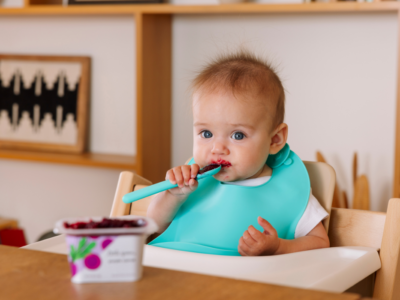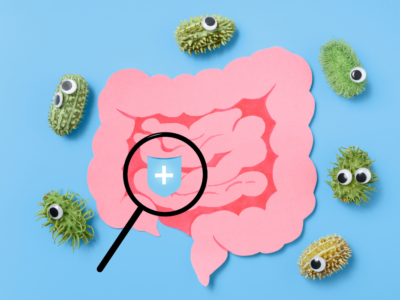Summers may not look as wild and carefree as they once did pre-children, but that’s no reason to stay locked away from the summer sun. While you may need to take a few extra precautions to keep your newborn or older baby comfortable and safe, summer is a great time to get outdoors, enjoy some new tasty summer meals, and make memories with your friends and family.
How does heat affect babies?
“Babies, especially newborns, are more susceptible to the dangers of heat because their physiologic adaptations aren’t as developed as an adult’s, so they can’t regulate their body temperature like adults. They also have a larger surface area to weight ratio than adults, so they lose water more quickly and are therefore more at risk of dehydration,” says Arunima Agarwal, MD, board-certified pediatrician based in New York.
But this doesn’t mean that you can’t enjoy the summer weather. It does, however, mean that you should pay close attention and take extra precautions to keep your baby cool, hydrated and protected from the sun’s harmful rays.
The American Academy of Pediatrics (AAP) shares some guidelines to keep in mind during the summer months, including:
- Keep newborns and babies less than 6 months old out of direct sunlight.
- Older babies should be kept out of the sun as much as possible.
- Avoid enclosed strollers and wagons – they can get hot very quickly.
- Limit direct sun exposure during peak hours when the sun’s rays are the strongest—typically from 10 a.m. to 4 p.m.
- Dress your baby appropriately for the weather.
So, how do you dress your baby during the summer?
Start with a quality sunscreen
Sunscreen shouldn’t be used on babies less than 6 months old unless other forms of sun protection aren’t available, because their skin is thinner and more permeable. This makes them more susceptible to the chemicals in sunscreen, according to the Food and Drug Administration (FDA).
For older babies, however, sunscreen should be the first layer you want to focus on when getting your little one ready to head outdoors.
The AAP recommends the following guidelines when it comes to sunscreen usage:
- Choose a sunscreen with “broad-spectrum” protection, meaning it will protect against both UVA and UVB rays.
- Use SPF 15 or higher for proper skin protection.
- Apply a thick layer to all areas of the body and allow it to absorb into the skin for approximately 15 minutes before sun exposure.
- Reapply at least every two hours and every time they get wet, whether from sweat or the pool.
Dress them in lightweight, breathable clothes
Dressing your baby for summer weather doesn’t have to be difficult, but it’s important to dress them with both sun protection and temperature in mind. Here are some tips:
- Dress your baby in a single layer of lightweight, loose-fitting clothes.
- Choose long sleeves and long pants when shade is not available to protect them from the sun.
- Opt for natural fiber clothing, such as linen, cotton, or bamboo, which are generally cool and breathable.
- Pay attention to the weave. Looser weaves allow for more breathability but also can allow more of the sun’s rays through.
- Lighter colors tend to be cooler when in the sun.
Always use a hat for sun protection
Hats are a summer must-have for babies of all ages. They’re a great way to shield your baby’s scalp, face, neck and shoulders from the sun—especially if they’re less than 6 months old since sunscreen is not recommended for this age.
Choose a breathable hat, with a wide brim to provide the most shade without overheating them. Adjustable chin straps are a great way to keep a hat on your little one’s head—which most parents know can be a difficult task.
Don’t forget the sunglasses
Although sunglasses are often just considered a cute accessory for babies, they’re important for the short- and long-term health of your little one’s eyes. But make sure you choose a pair with at least 99% UV protection.
As an added bonus, they make ones that float, so you can enjoy the pool without worrying about dropping a pair to the bottom of the pool.
When to seek medical attention
While you can—and should—enjoy your summers with your baby, try to avoid spending long periods of time in the sun and heat. If possible, cycle between air conditioning and the outdoors to avoid overheating on hot days.
Keep an eye on your little one for common signs of heat exhaustion, which include:
- Restlessness
- Flushed appearance
- Increased irritability or fussiness
- Extreme tiredness or lethargy
- Rapid breathing
- Nausea or vomiting
- Confusion
- Rapid heartbeat
“If you start to notice any signs of heat exhaustion, bring your child indoors or into the shade right away and seek immediate medical attention,” informs Dr. Agarwal.
While extra care and precautions need to be taken during the summer months, there’s no reason why you can’t get outside and enjoy your summer, even with a baby in tow—just be sure to dress them accordingly, take frequent breaks, and watch for signs that they may be getting too hot.



